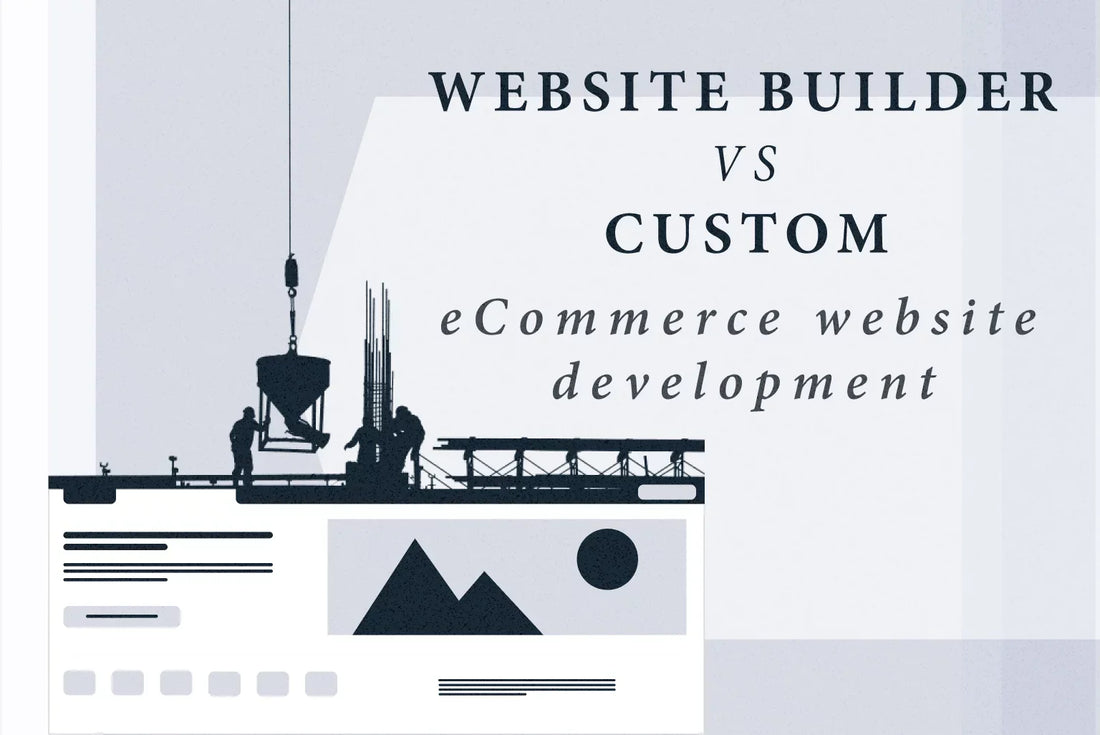
Website Builder vs Custom Coding: What’s Best for Your eCommerce Business?
When establishing an eCommerce business, one critical decision is choosing between using a website builder or opting for custom coding. This article explores the pros and cons of each approach, helping you determine which suits your needs best.
Choosing the Best eCommerce Platform
Before delving into the website builder vs. custom coding debate, it's crucial to choose the right eCommerce platform. Key considerations include:
- Customization: Ensure the platform offers a variety of tools and design options to make your site unique.
- Timeframe: Check if the platform can deliver within your deadline.
- Scalability: The platform should accommodate future growth.
- Third-Party Integrations: Look for platforms that support integrations to save development time.
- Developer Availability: Opt for platforms with a large pool of specialized developers.
- Budget: Make sure the platform's cost fits within your financial plans.
- Design Flexibility: Ensure the platform allows both template use and custom design creation.
Custom Coding an eCommerce Website
Custom coding involves building your website from scratch, tailored to your specific needs.
Pros:
- Customization: Full control over features and updates.
- Performance Optimization: Ability to fine-tune for speed and efficiency.
- Scalability: Adapt and grow without platform limitations.
Cons:
- Time-Consuming: Development can take several months.
- Expensive: Higher costs compared to other methods.
- Ongoing Costs: Updates and add-ons can be costly.
- Legacy Code Issues: Older code may need refreshing to avoid performance problems.
- Security: Responsibility for addressing security vulnerabilities.
- Compliance: Ensuring GDPR and PCI compliance can be challenging.
Using an eCommerce SaaS Platform
SaaS (Software as a Service) platforms like Shopify or Salesforce Commerce Cloud offer cloud-based solutions.
Pros:
- Faster to Market: Reduced development time.
- Cost-Effective: Predictable and often lower costs.
- Built-in Features: Many essential features are provided out-of-the-box.
- Managed Services: Hosting and security are handled by the provider.
Cons:
- Limited Customization: Less freedom to make your site unique.
- Performance Dependence: Reliance on the vendor for optimization.
- Vendor Dependence: Dependence on the provider for updates and security fixes.
- Integration Challenges: Potential compatibility issues with third-party solutions.
Development Based on Open-Source eCommerce Platforms
Open-source platforms like Magento Open Source and WooCommerce provide a flexible foundation with accessible source code for customization.
Pros:
- Unlimited Customization: High flexibility in features and design.
- Extensive Features: Many out-of-the-box solutions.
- Active Community: Support from a large development community.
- Developer Availability: Easy to find specialized developers.
- Numerous Extensions: Wide range of modules and plugins.
- Third-Party Integration: Easy integration with various add-ons and extensions.
Cons:
- Technical Expertise Required: Need for skilled developers.
- Higher Costs: Potentially higher costs than using template-based sites.
Conclusion
Choosing between a website builder and custom coding depends on your specific business needs, budget, and timeframe. Custom coding offers unparalleled customization and control but comes at a higher cost and longer development time. SaaS platforms provide quick, cost-effective solutions but with limitations in customization. Open-source platforms strike a balance, offering flexibility and a wealth of features supported by active communities. Assess your business goals and requirements carefully to make the best decision for your eCommerce website.